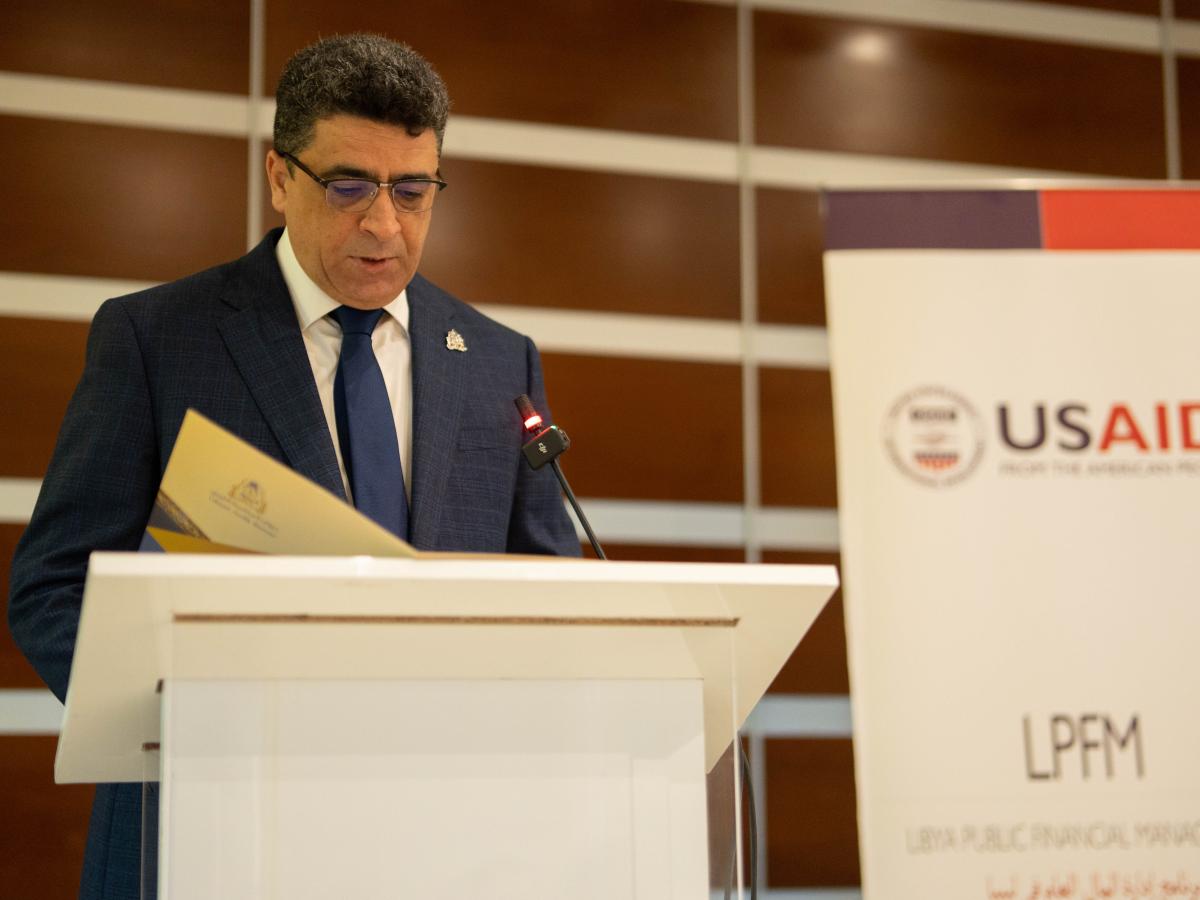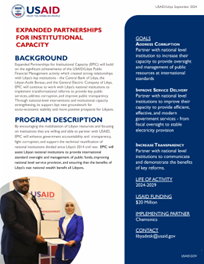2024-2029 • $20 million • Implemented by Chemonics
OVERVIEW
Expanded Partnerships for Institutional Capacity (EPIC) will build on the significant achievements of the USAID/Libya Public Financial Management activity which created strong relationships with Libya’s key institutions - the Central Bank of Libya, the Libyan Audit Bureau, and the General Electric Company of Libya. EPIC will continue to work with Libya’s national institutions to implement transformational reforms to provide key public services, address corruption, and improve public transparency. Through national-level interventions and institutional capacity strengthening, its support lays new groundwork for socio-economic stability in Libya and more positive prospects for its people. EPIC will support Libya’s energy sector to make strategic investments in green energy solutions to move Libya away from its heavy dependence on oil, creating diverse jobs and improving Libya’s carbon footprint. By encouraging the mobilization of Libyan resources and focusing on institutions that are willing and able to partner with USAID, EPIC will enhance government accountability and transparency, improve Libya’s green energy future, fight corruption, and support the technical reunification of national institutions divided since Libya’s 2014 civil war.
GOALS
Address Corruption
USAID will partner with national level institutions to increase their capacity to provide oversight and management of public resources at international standards.
Improve Service Delivery
USAID will partner with national level institutions to improve their capacity to provide efficient, effective, and modern services to the Libyan people. This includes all government services, from fiscal oversight to stable electricity provision.
Increase Transparency
USAID will partner with national level institutions to increase the dissemination of information, while communicating and demonstrating the benefits of key reforms.
ANTICIPATED RESULTS
USAID will partner with national level institutions, providing technical assistance that will support them to:
- Meet international standards required for anti-money laundering activities and countering financing of terrorism, improving Libya’s ability to interact with global financial markets.
- Meet international standards for fiscal oversight and auditing, improving accountability and transparency in the management of public resources
- Modernize and streamline national service delivery in key sectors, resulting in better, more accessible services for all Libyans
- Improve communication between national level institutions and Libyan constituents, increasing accountability and awareness of the benefits of sector reforms.
- Mobilize Libyan domestic resources towards shared development objectives, thereby increasing the sustainability and long term impacts of activities.


